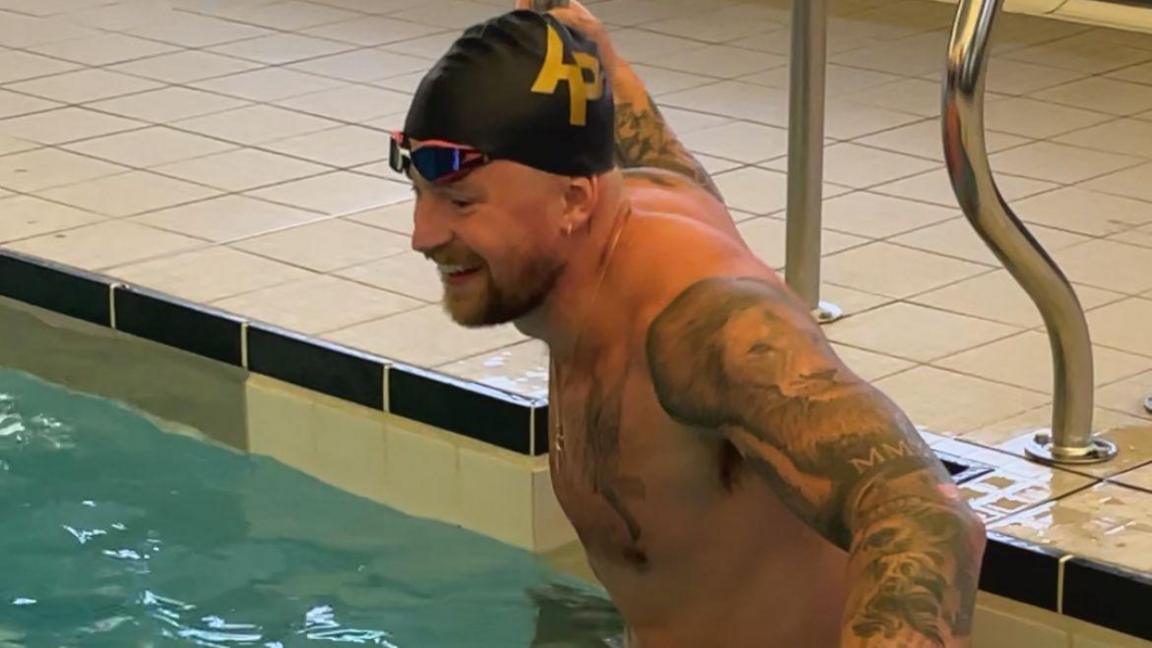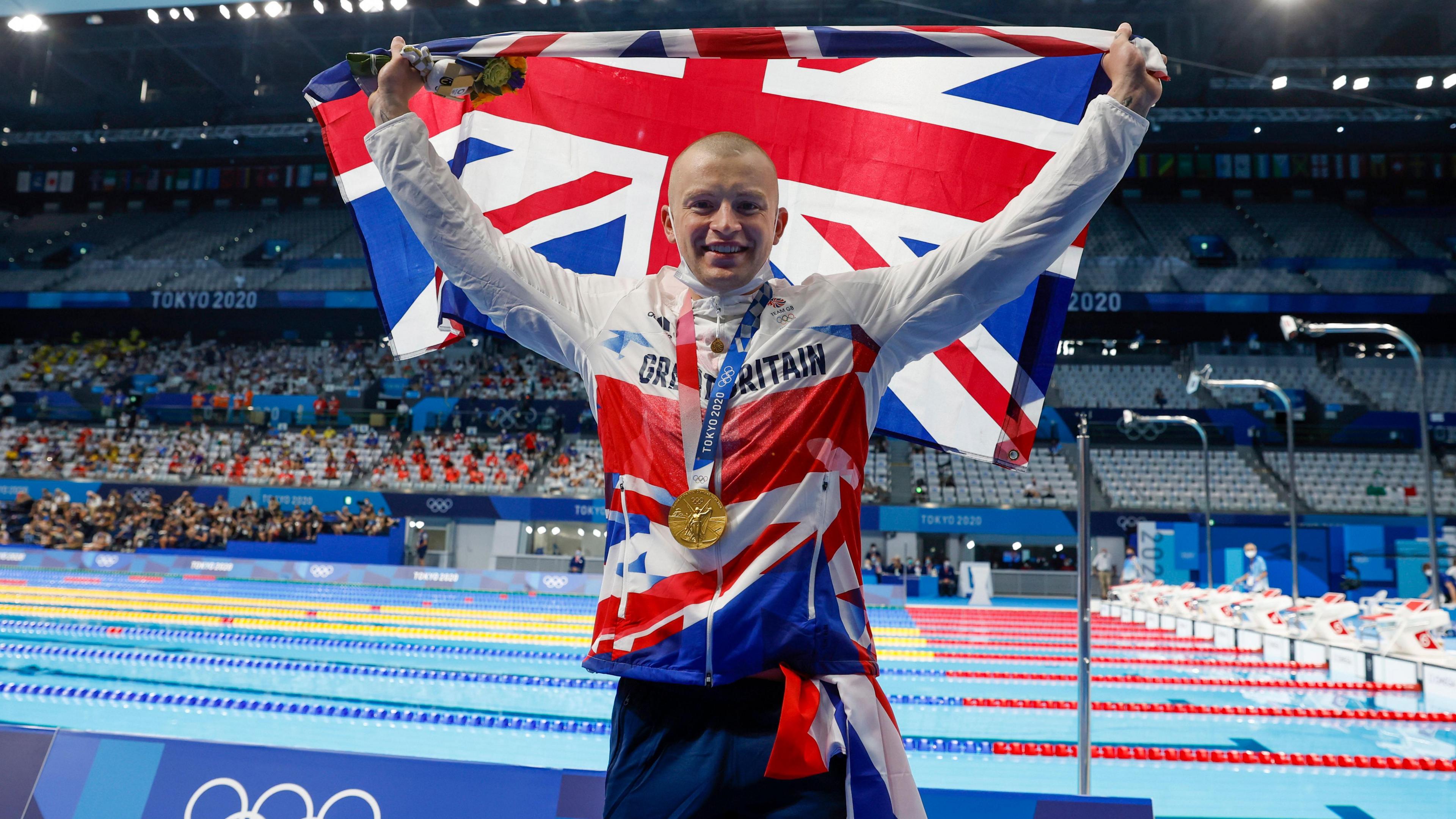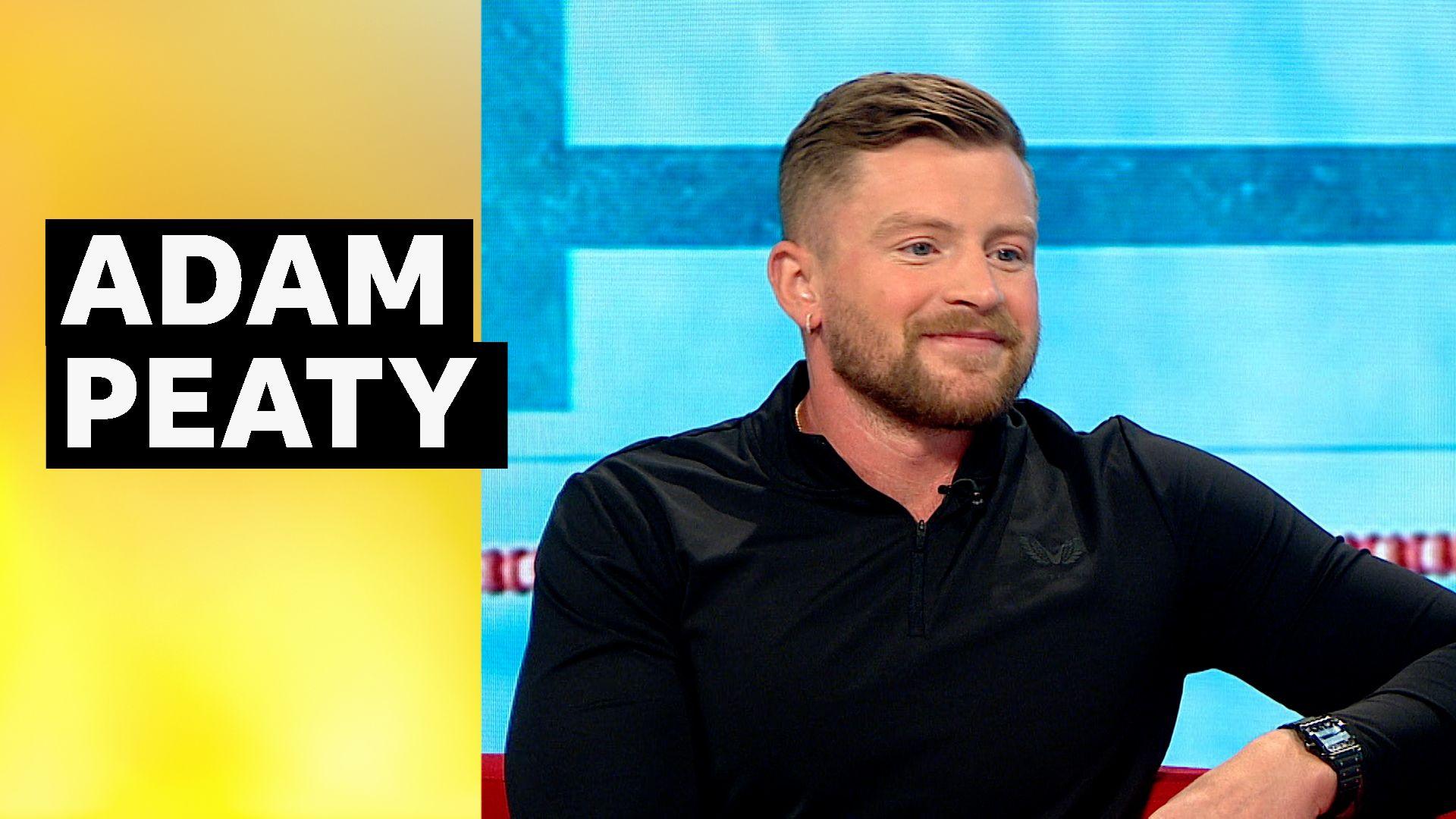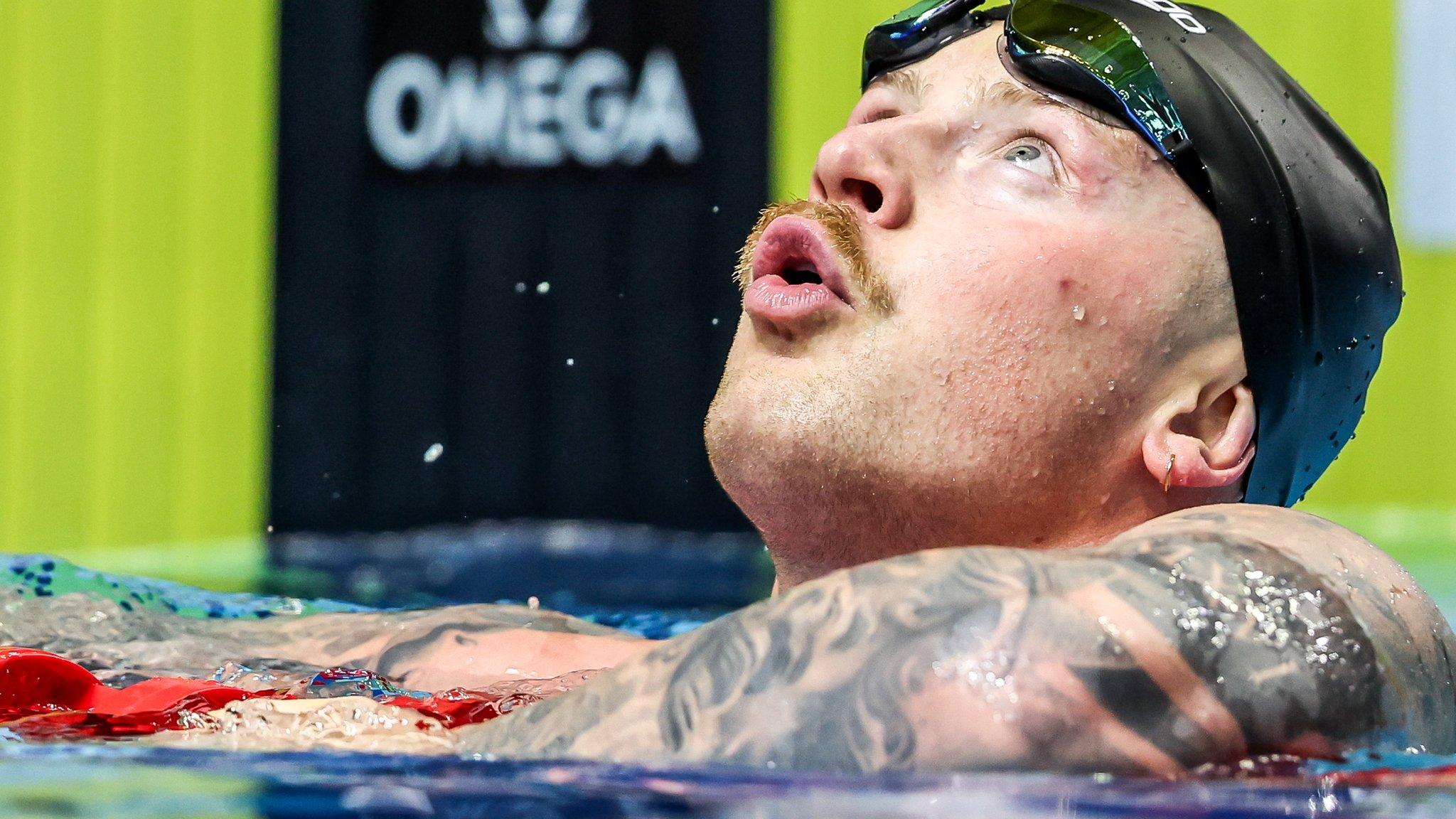Peaty 'just a normal guy who is good at a job'

Adam Peaty said he had "a lot of memories" from Uttoxeter Leisure Centre
- Published
Olympic swimmer Adam Peaty said he viewed himself as just “a person who is good at his job” as he returned to the leisure centre where his love for the sport began.
The three-time gold medallist, who is from the town, spoke about what it was like to return to the pool in Uttoxeter, Staffordshire, describing it as where his “swimming journey” started.
“Seeing the receptionist who has been here for 34 years – people like that really bring home how important this pool is to the community,” he said.
Peaty surprised BBC Radio Stoke’s Lee Blakeman at the pool as the presenter began his stint of the Thousand Mile Challenge, external for BBC Children in Need.
He said he had “a lot of memories” from his early days at the leisure centre, where he would dream about the success he now has.
Now considered to be one of the greatest men’s breaststroke swimmers in history, Peaty said his life had changed “in every aspect” since winning his first gold medal in the 100m breaststroke at the Rio Olympics in 2016.
Listen on BBC Sounds: Adam Peaty joined BBC Radio Stoke for the Children in Need Thousand Mile Challenge.
“I only see myself as a person who’s good at my job. Ego has to be put aside - a lot of athletes start to become successful and then ego comes in,” he said.
“For me, it’s about trying to be as down to earth as possible, knowing I’m a normal guy who has worked really hard and had a talent availability to do that.”
Despite his success, the swimmer said he was still willing to learn and find new ways of challenging himself.
He added: “Of course I make mistakes like everyone, I’m still human.”

Adam Peaty is considered to be one of the greatest swimmers of all time
Peaty also said becoming a father to son George had helped to change his perspective and to realise life was “not as serious as you think it is”.
He said he used that as motivation to become a bigger advocate for those with mental health issues and wanted to continue using his influence to help others.
“What’s the point of having all these medals if you’re not going to do anything with them? A lot of people I know would keep them in a safe because they’re precious,” he said.
“Yes they are precious but for me they also belong to the country you won them with…for me, giving back is just part of being a professional athlete.”
Get in touch
Tell us which stories we should cover in Staffordshire
Follow BBC Stoke & Staffordshire on BBC Sounds, Facebook, external, X, external and Instagram, external.
Related topics
- Attribution
- Published16 October 2024

- Attribution
- Published9 February 2024

- Attribution
- Published28 July 2024
